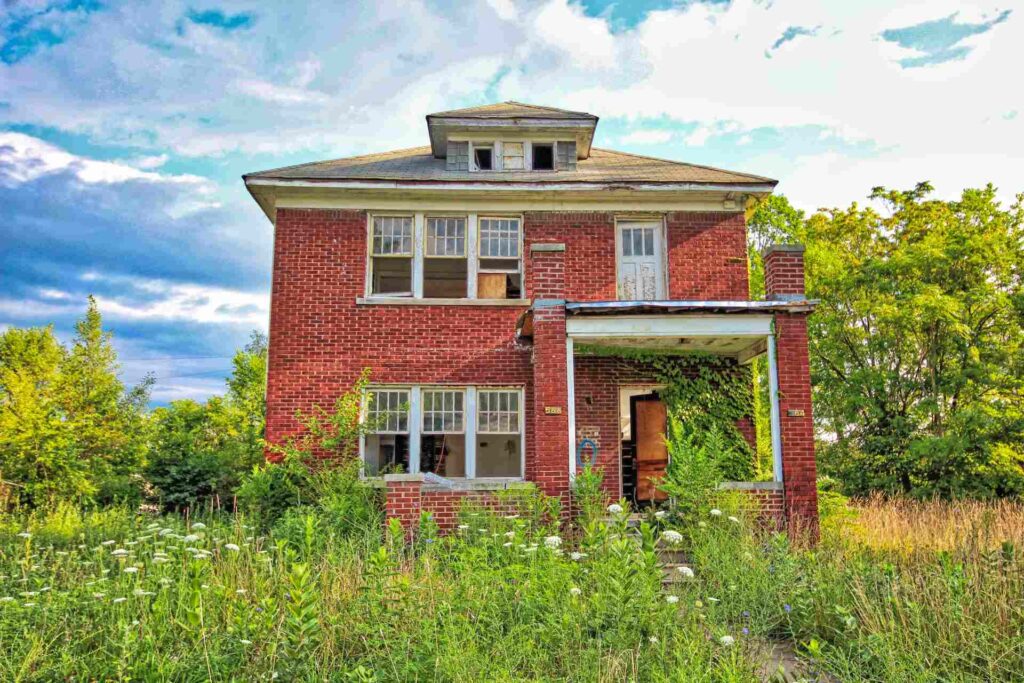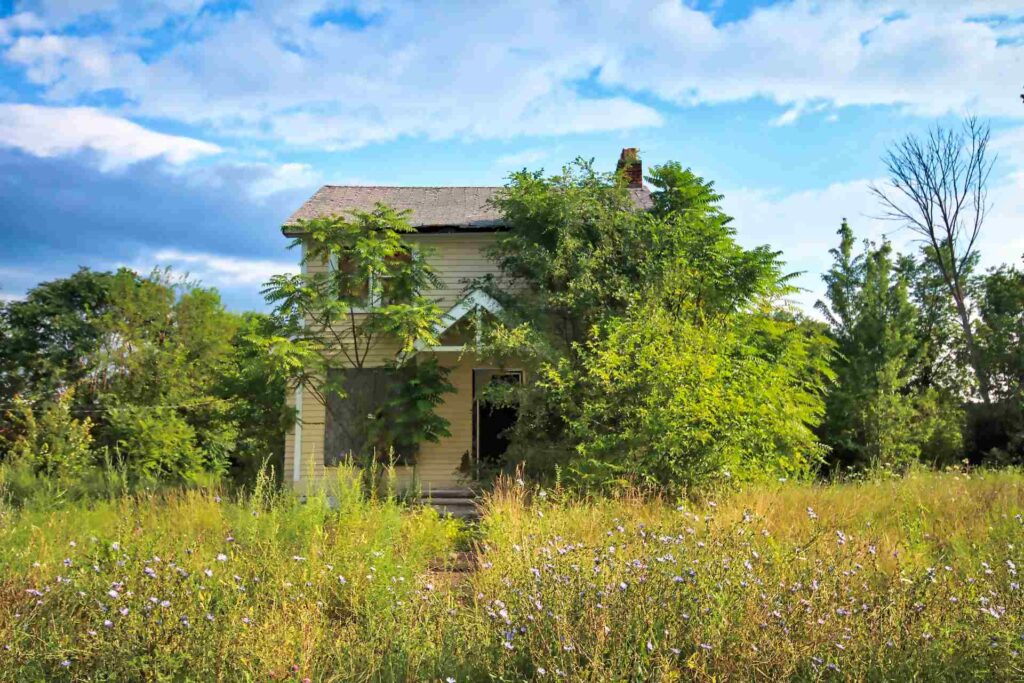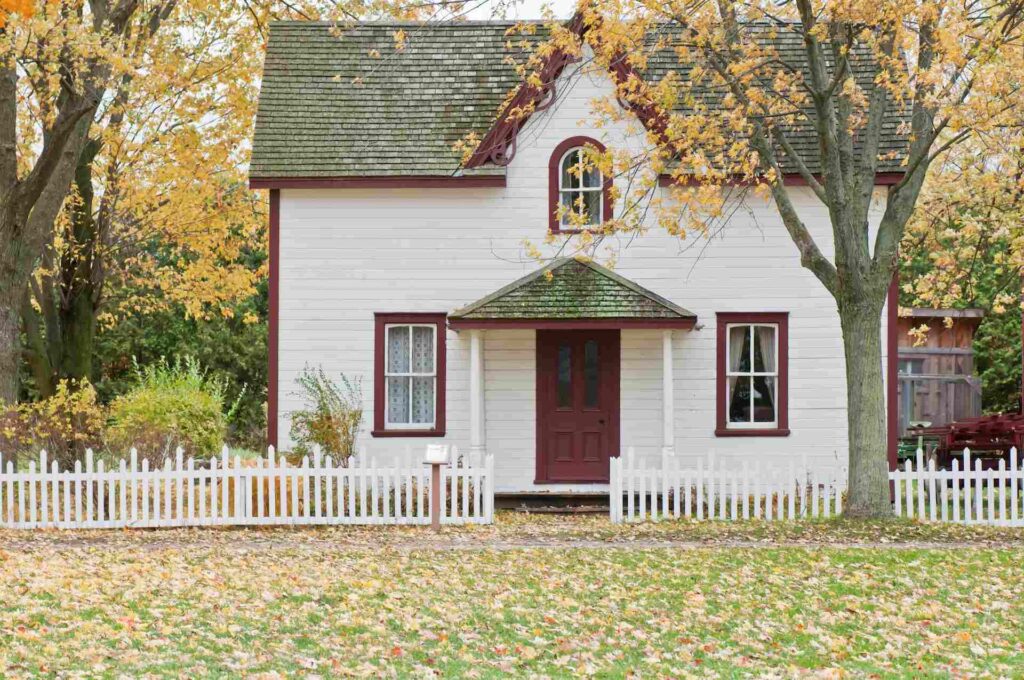Understanding the foreclosure laws in Murfreesboro, Tennessee, is important for anyone navigating the local real estate market. Whether you’re a homebuyer, seller, or investor considering foreclosed properties, a clear grasp of these laws enables you to make informed decisions that ensure your actions are both legal and serve your best interests.
Foreclosed laws and procedures in Murfreesboro underpin the financial transactions, opportunities, and rights of those facing foreclosure. Foreclosure is a sensitive issue that is not unique to Murfreesboro’s housing market. Because of the opportunities it presents, the major problem with foreclosure is unsuspecting homeowners being taken advantage of during foreclosure transactions.
This is largely due to the lack of knowledge of the local market and not knowing that their rights are protected by foreclosure laws. So, let’s comprehensively take a look at these laws, and what they mean for foreclosure investors as well as those whose property is being foreclosed.
What are the Types of Foreclosures in Tennessee?
The foreclosure laws in Murfreesboro, Tennessee, categorize foreclosures primarily into two types: judicial and non-judicial. Each type has distinct processes, requirements, and implications for homeowners and investors alike.
Judicial Foreclosures
In a judicial foreclosure, a lender files a lawsuit against the borrower. This happens when the borrower defaults on their mortgage payments. The process starts with the lender filing a complaint and obtaining a court order to foreclose. The homeowner receives a notice and has the right to defend themselves in court. If the court rules in favor of the lender, the property is then auctioned to the highest bidder. The proceedings are supervised and regulated by the court to ensure fairness and adherence to the law.
Non-judicial Foreclosures
Non-judicial foreclosures don’t require court intervention. The process relies on a power of sale clause present in the mortgage or deed of trust. When a borrower defaults, the trustee can initiate a foreclosure sale without a court’s intervention. The homeowner receives a notice of default and a notice of sale, providing them with a timeline to either pay the debt or face the sale of their property. This method is faster and less cumbersome than its judicial counterpart and offers less protection to the homeowner.
Understanding the difference between these two foreclosure types influences timelines, homeowner rights, and investment strategies. If you’re facing foreclosure in Murfreesboro, Tennessee and need a fast solution to help you out of a tight spot, get in touch with the professional cash home buyers at My Tennessee Home Solution. Our team has helped hundreds of Tennessee homeowners facing foreclosure regain control in challenging times, and move forward with confidence.
Now, let’s look at the law that regulates foreclosures in Murfreesboro
Key Foreclosure Laws and Procedures in Murfreesboro, Tennessee
Tennessee Code Title 35, Chapter 5 is the primary statute governing foreclosures in Tennessee, including Murfreesboro. To successfully navigate the complexities of foreclosures, understanding this code becomes paramount. Below are its crucial provisions:
Notice Requirements
Before taking action, the lender must notify the homeowner of their default. This notice provides clarity on the default amount and offers a specified time (usually 30 days) for homeowners to address the issue.
Power of Sale Clause
Tennessee predominantly uses non-judicial foreclosures. If the deed of trust or mortgage has a “power of sale” clause, the lender can pursue foreclosure without court involvement. Adhering to the stipulated steps and notices in the deed or mortgage is mandatory.
Right to Reinstate
Homeowners hold the right to halt the foreclosure by clearing their outstanding dues, inclusive of any additional charges or fees. However, this payment must be made before the foreclosure sale is scheduled.
Deficiency Judgments
If the foreclosure sale doesn’t accumulate enough to clear the debt, lenders can seek a deficiency judgment. This allows lenders to claim the residual debt from the homeowner, ensuring the sale price is justly below market value.
Absence of Statutory Right of Redemption
Post the foreclosure sale, Tennessee doesn’t offer homeowners a statutory “right of redemption.” Once the sale concludes, homeowners lose the right to redeem their property.
Publication of Sale
Transparency is key. For non-judicial foreclosures, the lender has to publicize the sale notice in a local newspaper for three successive weeks before the decided sale date.
Foreclosure Timeline
A grace period exists. Lenders typically have to wait for a minimum of 120 days post-mortgage default prior to initiating the foreclosure process.
Judicial Foreclosure Option
Though non-judicial foreclosures are standard in Tennessee, lenders can opt for judicial foreclosure. This involves filing a lawsuit, and the process only proceeds if the court provides its approval.
Military Safeguards
Active military members receive special protection. Tennessee’s foreclosure laws ensure that service members on active duty are safeguarded from unjust foreclosure actions.
Encouraging Counseling
Certain regions, including Murfreesboro, may promote or even mandate foreclosure counseling. This initiative helps homeowners explore alternatives to foreclosure, fostering better understanding and decision-making.
These regulations ensure a fair and transparent process for all parties. Whether a homeowner or an investor, awareness of these laws is essential for smooth navigation of the Murfreesboro real estate scene.
The Foreclosure Process Step-by-Step in Murfreesboro, Tennessee
As we mentioned, Murfreesboro follows Tennessee’s protocols and procedures for foreclosures. Here is a general step-by-step progression of the foreclosure process in Murfreesboro.
1. Mortgage Default
Before any official steps are taken, the homeowner must default on their mortgage. This usually means missing multiple consecutive payments, though the exact number can vary based on the mortgage agreement.
2. Notice of Default
Upon default, the lender issues a Notice of Default. This document notifies the homeowner of the missed payments, charges due, and provides a time frame (typically 30 days) to settle the outstanding amounts.
3. Right to Cure Period
Homeowners are granted a period to “cure” the default. This means they can halt the foreclosure by clearing the due amounts, including additional fees, within the stipulated time frame.
4. Notice of Sale (Non-Judicial Foreclosures)
If the mortgage or deed of trust contains a “power of sale” clause and the default isn’t cured, the lender will issue a Notice of Sale. This publicizes the date, time, and location of the foreclosure sale.
5. Publication of Sale
For transparency, the Notice of Sale must be published in a local newspaper. The law mandates three consecutive weekly publications before the actual sale date.
6. Judicial Intervention (If Applicable)
If the lender opts for a judicial foreclosure, they’ll file a lawsuit against the homeowner. The homeowner can defend their case. If the court rules in the lender’s favor, it authorizes the property’s sale.
7. Foreclosure Auction
On the scheduled date, the property is auctioned to the highest bidder. If no one outbids the lender, the property reverts to the lender and becomes a Real Estate Owned (REO) property.
8. No Post-Sale Redemption
After the sale concludes, Tennessee law doesn’t grant homeowners a “right of redemption.” This means they can’t repurchase their property by settling the outstanding amount.
9. Deficiency Judgment
Should the sale not cover the debt, lenders might pursue a deficiency judgment. This allows them to claim the remaining balance from the borrower. However, they must first prove that the sale price was reasonably below market value.
10. Property Eviction
If the homeowner doesn’t vacate the property after the sale, the new owner can initiate eviction proceedings to reclaim possession. This sequence allows homeowners, potential buyers, and investors to make decisions that serve the best interest of all parties involved and protect the legal rights of those who are facing foreclosure.
What Rights and Protections do Homeowners Facing Foreclosure in Murfreesboro, Tennessee Have?
1. Right to Receive Notices and Information
Homeowners facing foreclosure have the right to receive important notices and information related to the foreclosure process. This begins with the “first notice” or notice of default, which is typically sent by the lender when a homeowner falls behind on mortgage payments. This notice informs the homeowner about the default and initiates the foreclosure process.
2. Right to Consult with Attorneys and Seek Legal Assistance
Homeowners have the right to consult with qualified Murfreesboro foreclosure attorneys or Tennessee lawyers who specialize in related practice areas. Legal professionals can provide invaluable guidance on navigating the foreclosure process, understanding available options, and taking appropriate steps to protect their rights and interests.
3. Right to Explore Alternatives to Foreclosure
Homeowners have the right to explore alternatives to foreclosure, such as negotiating with the lender for a loan modification, refinancing, or pursuing a short sale. A short sale allows the homeowner to sell the property for less than the amount owed on the mortgage, with the lender’s approval, to avoid the full foreclosure process.
4. Right to Contest the Foreclosure Process
If homeowners believe that their lender is not following proper procedures or that they have been treated unfairly during the foreclosure process, they have the right to contest the foreclosure in court. This legal action provides an opportunity to present evidence and arguments against the foreclosure.
5. Right to Remain in the Home During Foreclosure
If the property is occupied by the homeowner, specific protections apply. The homeowner has the right to remain in the property during the foreclosure process until the sale date is determined. Additionally, a redemption period is provided after the foreclosure sale, during which the homeowner can repurchase the property.
6. Protections for Tenants
If the foreclosed property is occupied by tenants, they have certain protections as well. The Protecting Tenants at Foreclosure Act (PTFA) offers tenants the right to remain in the property for a certain period, even after the foreclosure sale. This provides temporary relief from immediate eviction.
7. Right to a Fair Foreclosure Sale Process
Homeowners have the right to expect a fair and transparent foreclosure sale process. The sale date must be communicated to the homeowner, and the sale should be conducted through a proper legal procedure. The trustee overseeing the sale is responsible for ensuring the process’s integrity.
8. Right to Seek Financial and Legal Assistance
Homeowners facing foreclosure have the right to seek financial counseling and legal assistance. Murfreesboro foreclosure attorneys and financial advisors can help homeowners understand their options, negotiate with lenders, and explore avenues to potentially save their homes from foreclosure.
9. Right to Declare Bankruptcy
While declaring bankruptcy is a serious step, it can provide immediate relief by invoking an automatic stay on the foreclosure process. Bankruptcy can allow homeowners to reorganize their debts and potentially save their homes.
10. Right to Negotiate with Lenders
Homeowners have the right to negotiate with their lenders to find mutually agreeable solutions. Lenders often prefer to work out alternatives to foreclosure if it means they can recoup at least a portion of the owed money without going through the foreclosure process.
What are the Alternatives to Foreclosure in Murfreesboro, Tennessee?
There are several alternatives to foreclosure that are encouraged in Murfreesboro, TN.
These alternatives can help homeowners retain their financial footing and potentially avoid the negative stigma of foreclosure.
Loan Modification
Lenders may allow changes to the mortgage terms. Adjustments can include an extended repayment period, a lowered interest rate, or even a principal reduction. This restructuring makes the loan more manageable for homeowners, allowing them to maintain ownership.
Forbearance Agreement
Facing temporary financial hardships? Lenders might grant a forbearance, temporarily halting or reducing monthly payments. Once the agreed period concludes, homeowners resume regular payments, along with a plan to cover the missed amounts.
Repayment Plan
Rather than demanding all overdue amounts immediately, lenders may propose a repayment plan. This entails homeowners making regular monthly payments along with an additional sum to cover the past dues gradually.
Renting the Property
If feasible, homeowners might rent out the property. Rental income could assist in covering mortgage payments. However, this requires adherence to local rental regulations and ensuring the mortgage type allows for such arrangements.
Refinancing the Property
If homeowners have adequate credit, they might refinance the mortgage. By securing a new loan with better terms or a lower interest rate, homeowners can use it to pay off the original mortgage.
Filing for Bankruptcy
While it’s a serious decision, filing for bankruptcy can halt the foreclosure process. Depending on the bankruptcy chapter filed (Chapter 7 or 13), homeowners might discharge their debt or formulate a repayment plan under court supervision.
Short Sale
If the outstanding mortgage amount surpasses the home’s market value, a short sale can be an option. With lender approval, homeowners can sell the property for less than the loan amount, with the proceeds going to the lender.
Exploring these alternatives gives homeowners some hope amidst financial turbulence. By proactively communicating with lenders and seeking expert advice, homeowners facing foreclosure can strategically steer clear of foreclosure.
Final Thoughts
Like with any other law relating to property, understanding the foreclosure laws in Murfreesboro, Tennessee, can initially seem like a daunting endeavor. The seemingly complex regulations and procedures, intertwined with the emotional toll of potentially losing one’s home, demand careful attention and knowledge.
However, empowerment comes from knowledge. Homeowners in Murfreesboro, when apprised of their rights and protections, are in a better position to navigate the foreclosure process and explore alternative solutions. One of these solutions is to sell your property “as-is” to My Tennessee Home Solution. We offer the most competitive values to homeowners looking to quickly sell their homes. There are no hidden costs or charges for selling your home to us. The closing period usually takes 14 days and payment is processed within 24 hours of the transaction.
We acknowledge that sometimes we face difficult financial moments and we would like to help you get the best value for your property. Get in touch with Tennessee Home Solution today and choose a better alternative to foreclosure.
10 Frequently Asked Questions About Foreclosure Laws in Murfreesboro, Tennessee
1. What are the foreclosure laws in Murfreesboro, Tennessee?
Murfreesboro foreclosure laws outline the legal procedures that lenders must follow when attempting to foreclose on a property due to the homeowner’s default on mortgage payments. These laws are governed by Tennessee statutes and provide a framework for both judicial and non-judicial foreclosures.
2. What is the foreclosure process in Murfreesboro, TN?
The foreclosure process in Murfreesboro generally starts with the lender sending a “first notice” of default to the homeowner. If the homeowner doesn’t rectify the default, the lender proceeds with filing a lawsuit to foreclose. If the court rules in favor of the lender, the property is sold through a foreclosure sale, supervised by a trustee.
3. Can homeowners stop foreclosure in Murfreesboro, Tennessee?
Yes, homeowners facing foreclosure in Murfreesboro can take several actions to potentially stop the process. They may work with their lender to negotiate new terms, explore options like a short sale, file for bankruptcy, or seek legal assistance from experienced TN lawyers who specialize in foreclosure-related practice areas.
4. What is a short sale in relation to Murfreesboro foreclosures?
A short sale involves selling a property for less than the amount owed on the mortgage. In Murfreesboro, this can be an option for homeowners who are unable to make mortgage payments and want to avoid foreclosure. The lender’s approval is required for a short sale, and it allows the homeowner to relieve themselves of the mortgage debt.
5. What happens during a foreclosure sale in Murfreesboro?
A foreclosure sale in Murfreesboro is an auction where the foreclosed property is sold to the highest bidder. This sale is typically conducted by a trustee appointed by the lender. The proceeds from the sale are used to satisfy the debt owed to the lender. It’s important to note that this sale can be of the property itself or the deed of trust that represents the property.
6. Are there any protections for occupied properties during foreclosure in Murfreesboro?
Yes, Murfreesboro foreclosure laws offer certain protections for homeowners occupying the property. If the property is considered occupied, the lender must follow specific legal procedures, including providing notice and allowing a redemption period after the foreclosure sale, during which the homeowner can repurchase the property.
7. How can a Murfreesboro foreclosure attorney assist homeowners?
A Murfreesboro foreclosure attorney can provide legal guidance and representation to homeowners facing foreclosure. They can help homeowners understand their rights, explore options to stop or delay the foreclosure, negotiate with the lender, and navigate the legal complexities associated with foreclosure proceedings.
8. What are the potential outcomes for lenders in a Murfreesboro foreclosure?
In a Murfreesboro foreclosure, lenders aim to recover the money owed to them through the sale of the property. If the sale price doesn’t cover the debt, the lender may pursue the homeowner for the remaining balance, known as a deficiency judgment.
9. What role does the trustee play in a Murfreesboro foreclosure sale?
The trustee in a Murfreesboro foreclosure sale is responsible for conducting the auction, ensuring that the sale is fair and transparent. They oversee the process and distribute the sale proceeds to the lender. The trustee is a neutral party and does not represent either the homeowner or the lender.
10. How can potential buyers or tenants navigate foreclosed properties in Murfreesboro?
Potential buyers interested in purchasing foreclosed properties in Murfreesboro should monitor foreclosure listings, attend foreclosure sales, and conduct thorough research on the property’s condition and market value. Tenants in foreclosed properties should be aware of their rights and the protections they have against immediate eviction under certain circumstances. Consulting with attorneys who specialize in real estate law can provide valuable assistance in both cases.





